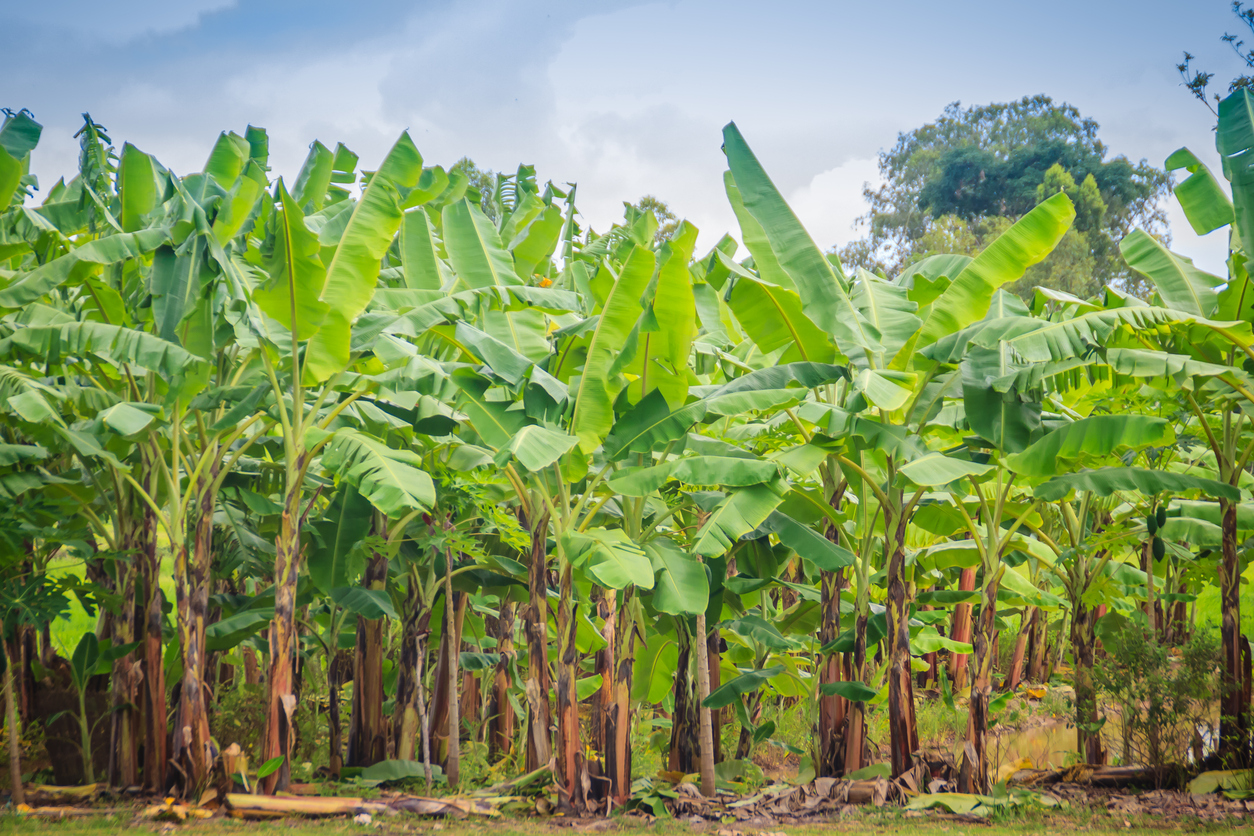
Ecuador Turns to Gene Editing to Combat Devastating Banana Fungus
November 19, 2025| |
Ecuadorian scientists are pioneering a biotechnological solution to fight Fusarium wilt, one of the world's most destructive plant diseases that poses a persistent threat to the global banana industry. As the world's largest banana exporter, Ecuador is directly in the path of the aggressive Tropical Race 4 (Foc TR4) variant of the fungus, which colonizes banana roots, cuts off the supply of water and nutrients, and eventually kills the plant. Because Foc TR4 can persist in soil for decades, traditional methods like fungicides and quarantine have proven ineffective.
Faced with this conventional challenge, a team of researchers has developed an innovative strategy using the gene editing tool CRISPR-Cas9. Instead of editing the banana plant itself, the scientists are targeting the fungus responsible for the disease. Specifically, they are deactivating a key virulence gene called SIX9, which the fungus relies on to successfully infect and colonize the plant. By performing precise, targeted cuts in the microorganism's DNA, the researchers significantly weaken the fungus's ability to cause disease, reducing its aggressiveness at the molecular level.
This breakthrough, published in Frontiers in Plant Science, offers hope for safeguarding the multibillion-dollar global banana trade, which supports thousands of jobs across the tropics and is a pillar of food security. By demonstrating that gene editing can be used to disarm pathogens like Foc TR4, the work from Ecuador establishes a vital new pathway for tropical agriculture to tackle devastating crop diseases that have been uncontrollable by conventional means.
For more details, read this article.
| |
You might also like:
- Researchers Identify Gene Controlling Growth and Development in Bananas
- Wageningen Researchers and Partners Develop First Banana Resistant to TR4 and Black Sigatoka
- Australia Approves Commercial Planting of GM Banana
Biotech Updates is a weekly newsletter of ISAAA, a not-for-profit organization. It is distributed for free to over 22,000 subscribers worldwide to inform them about the key developments in biosciences, especially in biotechnology. Your support will help us in our mission to feed the world with knowledge. You can help by donating as little as $10.
-
See more articles:
-
Plant
- Gene-Edited Cotton Offers Resistance Against Reniform Nematode
- International Research Team Releases Pangenome and Panphenome of Eggplant
- Environmental Risk Assessment Finds GM Maize DP51291 Safe for Non-Target Organisms
- Bt Maize Shows Strong Protection Against Major Pests in Tropical Asia
- Gene Editing Makes Crops 'Indigestible' to Pests
- Ecuador Turns to Gene Editing to Combat Devastating Banana Fungus
-
Animal
- Gene Drive Technologies: Advances in Health, Conservation, and Governance
-
Environment
- Experts Convert Food Waste into Biofuel for Aircraft
-
Read the latest: - Biotech Updates (February 18, 2026)
- Gene Editing Supplement (January 28, 2026)
- Gene Drive Supplement (February 22, 2023)
-
Subscribe to BU: - Share
- Tweet

